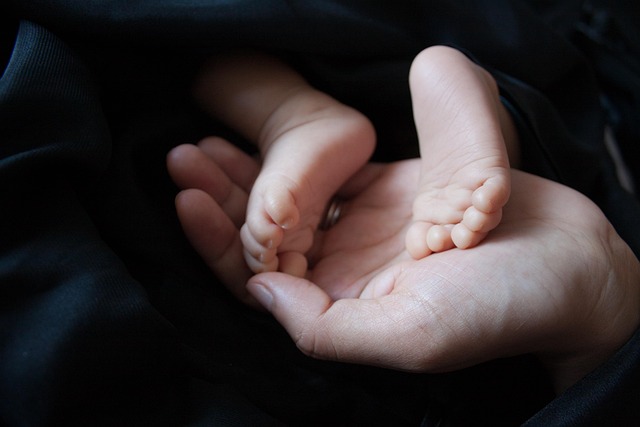In Oregon, the Department of Human Services (DHS) handles child welfare cases, balancing the safety of vulnerable children with the rights of parents or guardians. Defense attorneys navigate a complex legal landscape by scrutinizing evidence, ensuring procedural fairness, and adhering to relevant laws and regulations. They collaborate with community organizations and experts to challenge agency decision-making, prevent unwarranted separations, and advocate for positive long-term outcomes, using strategic legal arguments to promote just and effective child welfare systems.
In Oregon, the Department of Human Services (DHS) handles numerous child welfare cases, aiming to ensure the safety and well-being of vulnerable children. This article explores critical legal strategies for defending children’s rights in these cases, focusing on the role of lawyers, advocates, and the Oregon legal system. Understanding DHS child welfare procedures is essential for achieving positive outcomes, especially when challenging potential missteps or unfair practices. We provide insights into navigating these complex legal landscapes to safeguard the best interests of children involved.
- Understanding DHS Child Welfare Cases in Oregon: A Legal Perspective
- Key Legal Strategies for Defending Children's Rights
- The Role of Lawyers and Advocates in Child Welfare Defense
- Navigating the Oregon Legal System for Positive Child Outcomes
Understanding DHS Child Welfare Cases in Oregon: A Legal Perspective

In Oregon, the Department of Human Services (DHS) is responsible for child welfare cases, ensuring the safety and well-being of vulnerable children. From a legal perspective, understanding the intricacies of DHS child welfare procedures is paramount for effective defense strategies. These cases often involve complex scenarios, including allegations of abuse, neglect, or dependency, where the rights of both the child and their parents or guardians are balanced against the state’s duty to protect minors.
Oregon’s legal framework provides a structured approach to these matters, with specific laws and regulations guiding the process. Defense attorneys must navigate this landscape, ensuring that the rights of families are protected while adhering to the mandated procedures. This involves careful examination of case facts, legal precedents, and applicable statutes to formulate robust defenses and advocate for the best interests of all involved parties in DHS child welfare cases.
Key Legal Strategies for Defending Children's Rights

In Oregon, defending children’s rights in DHS (Department of Human Services) child welfare cases requires a robust legal strategy. One key approach is challenging the agency’s decision-making processes to ensure fairness and transparency. This involves meticulous examination of evidence, procedural due process, and compliance with state and federal laws governing child placement and removal. Legal representatives can also advocate for alternative solutions, such as family preservation services or cultural competency training, to prevent unwarranted separations.
Additionally, building strong relationships with community organizations and experts in childhood development is vital. These partnerships can provide insights into the unique needs of families involved in DHS cases, helping lawyers tailor their defenses. Effective representation includes challenging stereotypes and biases that may influence case outcomes, ensuring that each child’s circumstances are evaluated impartially. This comprehensive strategy aims to safeguard children’s rights while aiming for positive long-term outcomes.
The Role of Lawyers and Advocates in Child Welfare Defense

In Oregon, lawyers and advocates play a pivotal role in defending children’s rights within DHS child welfare cases. Their expertise is essential to ensuring that the legal process respects the best interests of the child while upholding their constitutional rights. These professionals navigate complex laws and regulations related to family services, foster care placement, and termination of parental rights. They advocate for appropriate interventions, challenge unfair practices, and provide robust legal representation to safeguard vulnerable children.
Through strategic legal arguments, they protect against arbitrary decisions, ensure procedural fairness, and promote positive outcomes. Their efforts can prevent premature placements, secure suitable living arrangements, and support family reunification when possible. By championing for children’s rights, these advocates contribute to a more just and effective child welfare system in Oregon.
Navigating the Oregon Legal System for Positive Child Outcomes

Navigating the Oregon legal system is a complex task, especially when it comes to DHS child welfare cases. The state’s judicial framework plays a pivotal role in ensuring positive outcomes for children involved in such proceedings. One key aspect is understanding the jurisdiction and procedures within the county courts, where these cases are typically heard. Lawyers specializing in child welfare defense must be adept at navigating these local systems, ensuring that every step aligns with Oregon’s legal standards and regulations.
The process involves careful preparation, thorough documentation, and a deep knowledge of case law relevant to DHS interventions. By leveraging these strategies, legal professionals can advocate effectively for the rights of children and families, aiming to achieve favorable resolutions. This meticulous approach is essential to challenging potential biases or misunderstandings that may arise in child welfare cases, ultimately fostering a more just and compassionate outcome.
